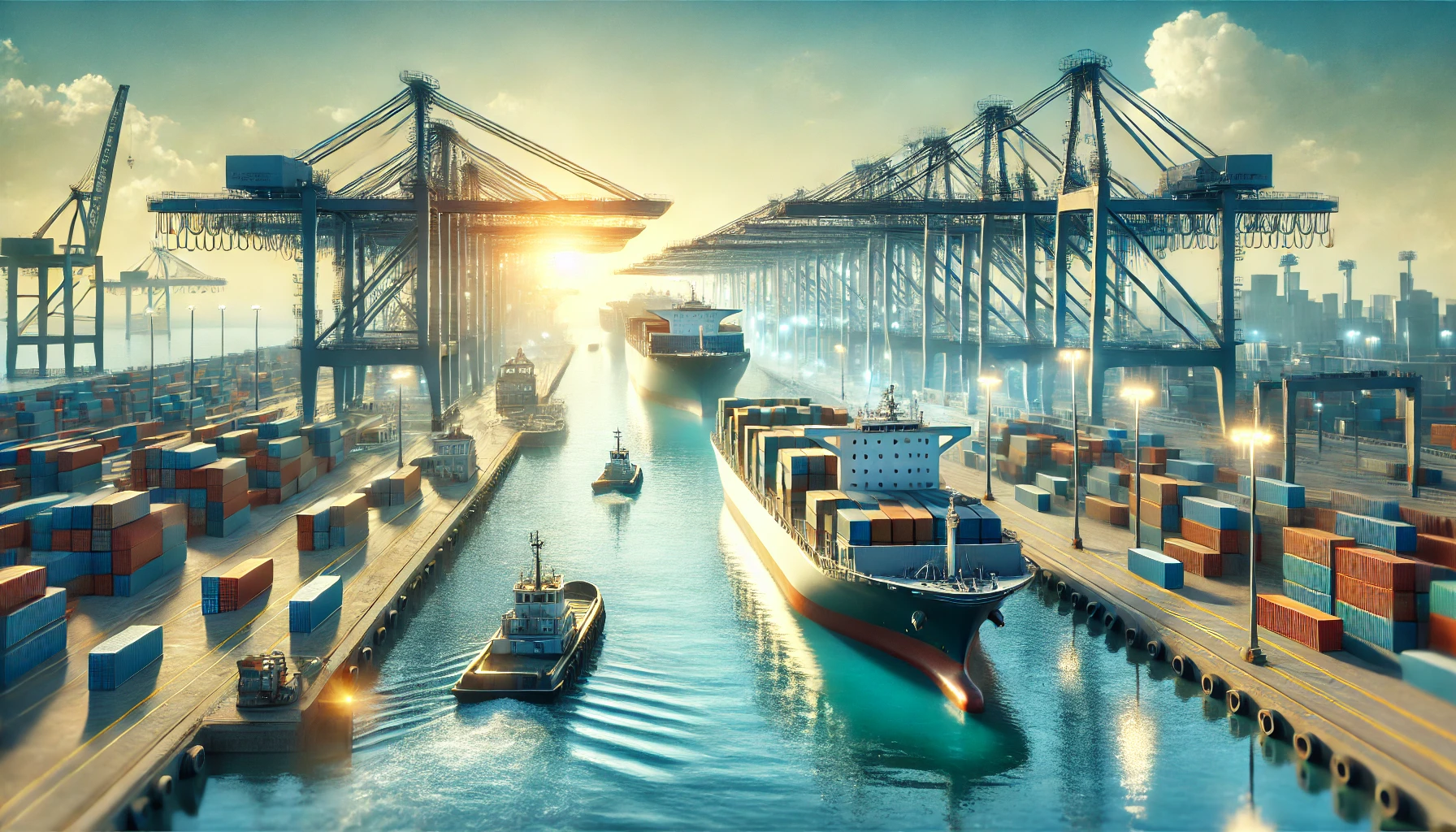Lok Sabha Passes ‘Carriage of Goods by Sea Bill, 2024’ to Modernise Maritime Sector
In addition to the Carriage of Goods by Sea Bill, Shri Sarbananda Sonowal also introduced the ‘Indian Ports Bill, 2025,’ aimed at consolidating laws related to port management.

- Country:
- India
In a significant step towards enhancing the Ease of Doing Business (EODB) in India’s maritime sector, the Lok Sabha passed the ‘Carriage of Goods by Sea Bill, 2024.’ The bill, introduced by Union Minister of Ports, Shipping and Waterways, Sarbananda Sonowal, marks a historic move to modernise India’s shipping laws, replacing the outdated ‘Carriage of Goods by Sea Act, 1925.’
Modernising India’s Maritime Legal Framework
The colonial-era 1925 Act was based on the Hague Rules, which had complex legal language and limited scope. Over time, these regulations became outdated, failing to meet the demands of modern global trade. The newly passed bill aims to rectify these deficiencies by introducing clarity, efficiency, and a streamlined legal framework better suited to contemporary shipping operations.
Speaking on the occasion, Shri Sarbananda Sonowal stated, “The passage of the Carriage of Goods by Sea Bill in the Lok Sabha is a crucial step toward realising PM Shri Narendra Modiji’s vision of modernising India’s legal framework. This step removes colonial-era legacies that hindered progress and paves the way for a robust maritime commerce system that strengthens investor confidence and positions India as Viksit Bharat.”
Key Features of the Carriage of Goods by Sea Bill, 2024
-
Simplified Legal Language: The bill introduces a clearer structure, making it more accessible for exporters, importers, and shipping professionals.
-
Alignment with International Standards: The bill allows India to swiftly adapt to evolving international maritime conventions, keeping the nation at par with global shipping laws.
-
Transparency and Accountability: Clause 10 of the bill provides parliamentary oversight for executive notifications, ensuring transparency in governance.
-
Elimination of Colonial-Era Laws: The new legislation formally repeals the 1925 Act, making a decisive move towards India’s independent maritime legal identity.
-
Reduction in Legal Ambiguities: The bill helps minimise litigation risks, facilitating smoother maritime trade.
This bill is expected to play a crucial role in reinforcing India’s shipping sector by reducing bottlenecks and making regulations more business-friendly.
Introduction of the Indian Ports Bill, 2025
In addition to the Carriage of Goods by Sea Bill, Shri Sarbananda Sonowal also introduced the ‘Indian Ports Bill, 2025,’ aimed at consolidating laws related to port management. This bill seeks to optimise the utilisation of India’s extensive coastline and foster the structured growth of the port sector.
Objectives of the Indian Ports Bill, 2025:
-
Empowering State Maritime Boards: The bill establishes and strengthens State Maritime Boards to ensure effective management of non-major ports.
-
Creation of the Maritime State Development Council: This body will coordinate structured port growth and development across states.
-
Enhancing Port Governance: The bill modernises port regulations to improve efficiency and the ease of doing business.
-
Strengthening Safety, Security, and Environmental Protection: The new law includes provisions for pollution control, disaster management, emergency response, and navigation safety.
-
Adjudicatory Mechanisms for Dispute Resolution: The bill introduces efficient legal frameworks to resolve port-related disputes and safeguard India’s maritime infrastructure.
On the introduction of the Indian Ports Bill, Shri Sonowal remarked, “This transformative bill modernises India’s port governance and maritime infrastructure. By consolidating laws, empowering State Maritime Boards, and ensuring safety, security, and sustainability, we aim to position India as a global leader in maritime trade.”
Strengthening India’s Position as a Global Maritime Hub
The introduction and passage of these bills reflect India’s strong commitment to developing a robust maritime sector that aligns with global standards. With a focus on modernisation, efficiency, and competitiveness, these reforms are expected to:
-
Boost India’s global shipping competitiveness.
-
Attract more investment into the port and shipping industries.
-
Streamline regulations, making compliance easier for stakeholders.
-
Strengthen India’s role in international trade and maritime governance.
As India continues to emerge as a key player in global shipping, the passage of these bills represents a crucial leap towards a future-ready maritime sector. By embracing innovation, regulatory clarity, and strategic growth, the country is poised to become a major hub for international maritime trade, reinforcing its commitment to economic progress and sustainability.
- READ MORE ON:
- Lok Sabha
- Carriage of Goods by Sea Bill
- 2024
- Sarbananda Sonowal
ALSO READ
Lok Sabha Speaker Inaugurates MLA Orientation in Delhi
Lok Sabha Gears Up for Spirited Debate on Ministry Grants and New RBI Rules
Lok Sabha adjourned till 1 pm amid opposition protests over PM's remarks.
I bow to crores of people of the country who contributed to success of Mahakumbh in Prayagraj: PM Narendra Modi in Lok Sabha.
Protests Rock Lok Sabha Over Maha Kumbh Stampede










